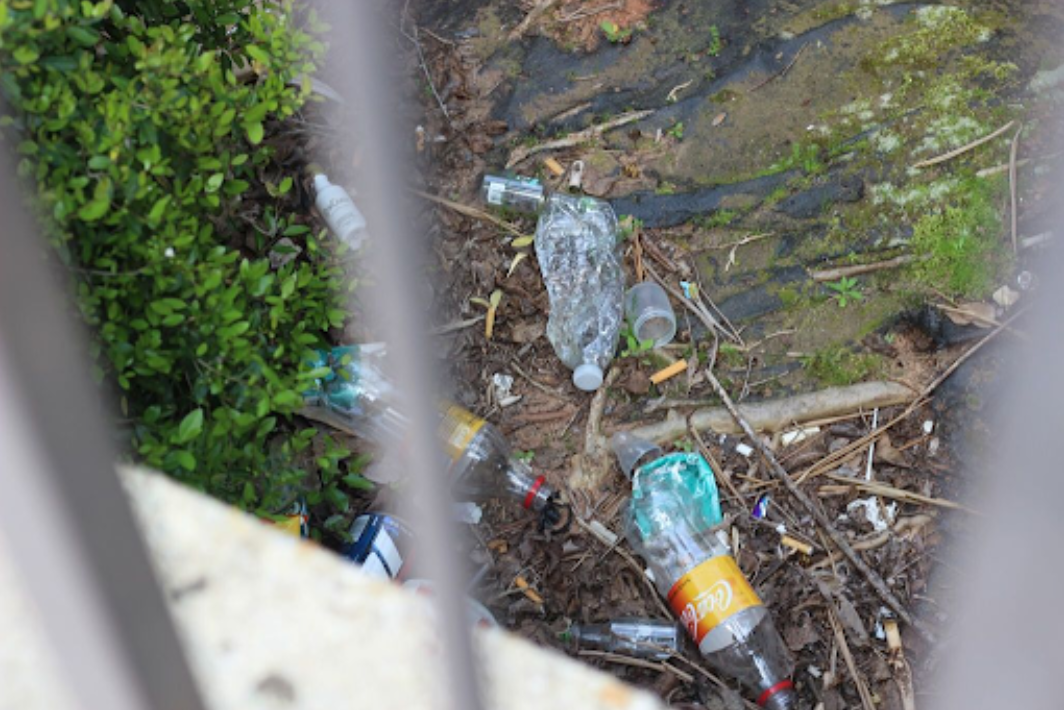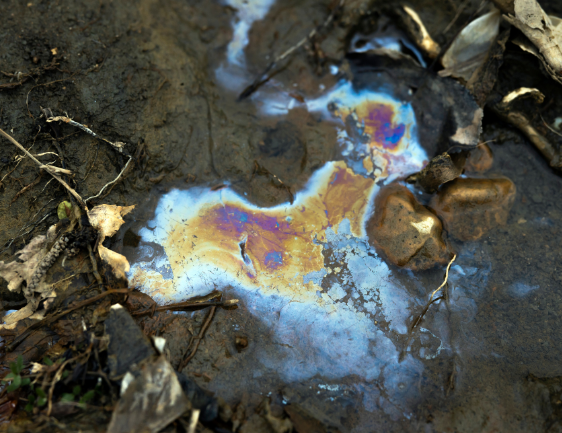Georgia Environmental Justice
Learn how BLKHLTH is committed to improving environmental health and reducing cancer disparities for Georgia’s Black residents most in need
Historical Legacy of Structural and Environmental Racism in Georgia
The state of Georgia has one of the highest Black populations in the U.S., and its capital, Atlanta, is often referred to as the “Black Mecca” (Pew). But what is often overlooked is Georgia’s deep history of both structural and environmental racism.
Practices and policies in the name of public development, have aimed to boost the state’s metropolitan growth, as well as expand operations for chemical and agricultural manufacturing. While progress has been viewed from the economic success of these projects, the impacts and intentional harm to Georgia’s Black communities can often go unnoticed to those outside of these communities.
As both metropolitan and rural expansion grows, Black Georgians continue to experience unequal living conditions.
Impacts of Structural and Environmental Racism in Georgia
A common practice in Georgia’s history is redlining, which is the discriminatory practice of limiting services such as loans, mortgages, and insurance policies. This can lead to decreased home values, less job opportunities, and less development in Black neighborhoods (Cornell Law).
The impacts of redlining also have allowed for many of Georgia’s Black neighborhoods to be prime locations for industrial infrastructure, often causing these neighborhoods to bear the harmful environmental effects of industrial waste and hazards. This can lead to Black neighborhoods having a higher risk of exposure for environmental harms such as toxic waste, polluted air, and poor water quality (Journal of Urban Health). And as the effects of climate change become more apparent, instances of extreme flooding and extreme continue are examples of the unequal environmental conditions that Black residents continue to face (Georgia Climate Project).
While these policies and practices are known to cause harm to Black neighborhoods, there is also a disproportionate risk to Black Georgians when it comes to environmental exposures in both living and work-spaces.
Disproportionate Health Burden on Black Georgians
Black communities across Georgia are more likely to face indoor and outdoor environmental burdens. Indoor hazards and pollutants can be found both in the home and workplace. This can place Black residents at a higher risk of health complications from indoor hazards that come from poor ventilation, which lead to conditions such as asthma, allergies, and chronic obstructive pulmonary disease (COPD) (NLM). Poor ventilation and household overcrowding can also lead to a higher risk of COVID-19 (GBPI).
The local climate can also cause Black Georgia residents to experience worsened effects of humidity and dampness, leading to mold, leaks, and flooding in the home (AJC).
Cancer Clusters
Cancer clusters are areas that have a higher number of cancer cases than normal. This can be caused by factors such as toxic waste or pollutants in the environment that can lead to cancer (ACS).
Common Environmental Hazards in Georgia
Outdated housing appliances and infrastructure can also cause increased health effects from hazards such as radon, lead, and asbestos (NCHH).
Asbestos
A fibrous mineral that was commonly included in housing and industrial projects; Asbestos can cause tiny fibers to get stuck in the lungs and irritate lung tissues. Workers and others who breathed asbestos fibers over many years have developed asbestos-related cancer and noncancer diseases (CDC).
Lead
A chemical that was often used in paint and can contaminate air, water, and soil. Lead poisoning can lead to developmental delays, complications in birth, and kidney issues (CDC).
Radon
A radioactive gas that can be found in Georgia’s water and soil, and is known to lead to lung cancer (GA CPD).
Hazardous Air Pollutants (HAPs)
Hazardous air pollutants, also known as toxic air pollutants or air toxics, are those pollutants that are known or suspected to cause cancer or other serious health effects (EPA).
HAPs include toxins commonly found in older homes, schools, and workplaces like asbestos, lead, and radon
HAPs can deposit from the air onto land and into water, and can enter land and water bodies through runoff and discharge from industrial sites
There are over 180 EPA-recognized hazardous air pollutants
Just because a pollutant is not listed on the list as "hazardous" does not mean that it does not cause cancer or is safe to breathe
Disproportionate Impacts of Land, Water, and Air Pollutants
Georgia’s outdoor pollutants are also more likely to impact Black residents, and can have negative effects on the air, water, and soil quality (NIH).
Black residents are more likely to experience the effects of poor air quality in Georgia, as several highways were intentionally built through Black neighborhoods, leading communities to experience negative health effects as Atlanta traffic worsens. This can lead to respiratory issues, heart disease, and asthma as well. (NIH)
Access to clean drinking water can also be worse for Black residents, as aging water line infrastructure is prone to break- which can leave metropolitan residents without clean water, or without water at all (Brookings).
Toxins can also be found to pollute water in smaller towns, as companies will dispose of waste, which can lead to cancer-causing agents to be found in water sources (ANF).
Environmental Equity Decision Makers
Georgia Public Service Commission
The Public Service Commission ensures that community members receive reliable and affordable communications for electric and natural gas services
Georgia Department of Public Health
The Department of Public Health provides health promotion and disease prevention initiatives to keep populations healthy at the state-level
The Georgia General Assembly is the group of Representatives and Senators that holds sessions to make decisions on laws and operating budgets for the state
Georgia Environmental Protection Division
The Environmental Protection Division manages and protects Georgia's air, water, and land resources
Georgia Power is an electric utility corporation that provides electricity to 159 counties in Georgia
Georgia "Bad Actor" Businesses
Bad Actors are companies that have repeatedly failed to abide by regulations that impact the health and safety of communities and their surrounding environment.
The Georgia Environmental Protection Division provides a Hazardous Site Inventory, which generates a list and real-time mapping of corporations that may contribute to environmental hazards in Georgia.
Identification and Mitigation Recommendations for environmental exposures
Know what resources are available in your community to get access to a clean indoor environment
Indoor Environmental Exposure Resources
Radon Testing
Testing is the only way to know if radon is present in your home. Radon tests can be purchased from local hardware stores, but also can ordered from Georgia’s Public Library System
Indoor Air Quality Testing
Inspections for mold, lead, and air quality can be found from local businesses, and guides to air quality basics are provided by the Georgia Department of Health
Outdoor Environmental Exposure Resources
Heat Mapping Projects
Urban Heat ATL has launched a heat mapping project to show which urban areas experience hotter temperatures than their surrounding regions. This project demonstrates which communities are most affected by extreme heat, and provides resources for cooling and emergency planning
Air Sensor Loan Programs
The EPA provides portable fine particulate matter sensors to the public to collect air quality data in their communities
What can I do?
Know your rights as a tenant, worker, and community member
Tenant Rights
As a tenant, Georgia residents hold rights to a healthy home, and the Georgia Safe at Home Act protects renters in their right to live in a home that is safe and habitable
Community Rights
As a community, the Georgia Environmental Protection Division provides guidance on how to best protect the environment, and provide education on how to ensure that a clean and safe environment is available to all
Worker Rights
As a worker, Georgia Law gives you the right to be informed of and protect yourself against hazardous conditions in the workplace
Organizational Resources
Public Health and Healthcare Organizations
Housing and Worker Justice Organizations
Environmental Justice Organizations
This project is made possible thanks to the funding and support of JustPax Fund.
Want to collaborate with BLKHLTH?
BLKHLTH collaborates with local leaders, health professionals, and advocates to shift systems, expand access, and reimagine health equity.











